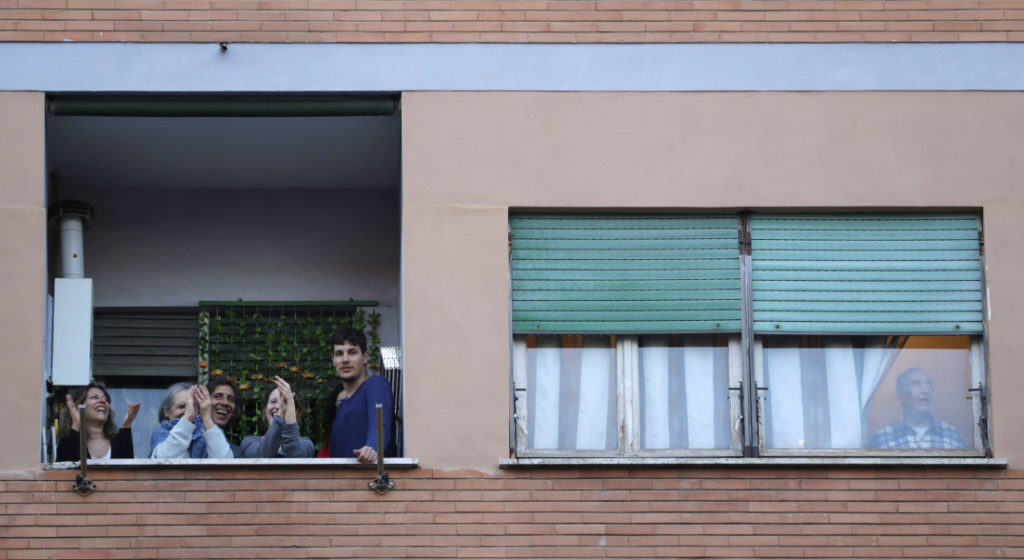“Explaining the Emergence of Coronavirus Rituals
An anthropologist illuminates how both old and new rituals can provide a sense of comfort during times of uncertainty.
Dimitris Xygalatas is an anthropologist at the University of Connecticut.
https://www.sapiens.org/culture/coronavirus-rituals/

Responding to the coronavirus pandemic, most American universities have suspended all campus activities. Like millions of people all around the world, the lives of students all over the U.S. has changed overnight.
When I met my students for what was going to be our last in-class meeting of the academic year, I explained the situation and asked whether there were any questions. The first thing my students wanted to know was, “Will we be able to have a graduation ceremony?”
The fact that the answer was no was the most disappointing news for them.
As an anthropologist who studies ritual, hearing that question from so many students did not come as a surprise. The most important moments of our lives—from birthdays and weddings to college graduations and holiday traditions are marked by ceremony.
Rituals provide meaning and make those experiences memorable.
RITUAL AS A RESPONSE TO ANXIETY
Anthropologists have long observed that people across cultures tend to perform more rituals in times of uncertainty. Stressful events such as warfare, environmental threat, and material insecurity are often linked with spikes in ritual activity.
In a laboratory study in 2015, my colleagues and I found that under conditions of stress people’s behavior tends to become more rigid and repetitive—in other words, more ritualized.
The reason behind this propensity lies in our cognitive makeup. Our brain is wired to make predictions about the state of the world. It uses past knowledge to make sense of current situations. But when everything around us is changing, the ability to make predictions is limited. This causes many of us to experience anxiety.
That is where ritual comes in.
Rituals are highly structured. They require rigidity and must always be performed the “right” way. And they involve repetitition: The same actions are done again and again. In other words, they are predictable.
So even if they have no direct influence over the physical world, rituals provide a sense of control by imposing order on the chaos of everyday life.
It is of little importance whether this sense of control is illusory. What matters is that it is an efficient way of relieving anxiety.
(…)
By aligning behavior and creating shared experiences, rituals forge a sense of belonging and common identity that transforms individuals into cohesive communities. As field experiments show, participating in collective rituals increases generosity and even makes people’s heart rates synchronize.
TOOLS FOR RESILIENCE
It is not surprising, then, that people around the world are responding to the novel coronavirus crisis by creating new rituals.
Some of those rituals are meant to provide a sense of structure and reclaim the sense of control. For example, comedian Jimmy Kimmel and his wife encouraged those in quarantine to hold formal Fridays, dressing up for dinner even if they were alone.
(…)
People are coming up with a host of rituals to maintain a broader sense of human connection. In various European cities, people have started to go to their balconies at the same time every day to applaud health care workers for their tireless service.”
